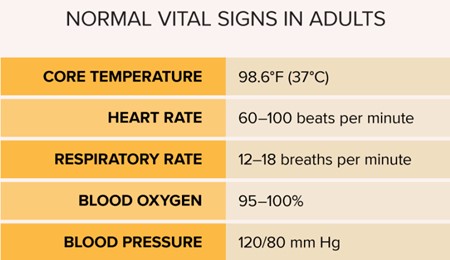The practical nurse (PN) finds a postoperative client lying in bed with an unsecured surgical dressing as seen in the picture. After reinforcing the dressing, which follow-up assessment is most important for the PN to implement?
Vital sign measurement.
Fluid volume intake and output.
Volume of peripheral pulses.
Incisional pain scale rating.
The Correct Answer is A
This is the most important follow-up assessment for the PN to implement because it can detect signs of bleeding, infection, or shock that may result from the unsecured surgical dressing. The PN should monitor the client's blood pressure, pulse, temperature, and respiratory rate and report any abnormal changes.

B. Fluid volume intake and output is not the most important follow-up assessment for this client and may not reflect the current status of the client's fluid balance or blood loss.
C. Volume of peripheral pulses is not the most important follow-up assessment for this client and may not be affected by the unsecured surgical dressing unless it is located on a limb or near a major artery.
D. Incisional pain scale rating is not the most important follow-up assessment for this client and may not indicate the severity or cause of the client's pain.
Nursing Test Bank
Naxlex Comprehensive Predictor Exams
Related Questions
Correct Answer is B
Explanation
The correct answer is choice B: Children need time to actively explore their environment. Choice A rationale:
Playpens do provide a sense of security for the child, but confining the child solely to the playpen might hinder their developmental needs. While it is essential to have a safe space for a toddler, children also require opportunities to explore and engage with their environment actively.
Choice B rationale:
The practical nurse (PN) should use this rationale when responding to the parent. Children, especially toddlers, learn and develop crucial skills through active exploration of their environment. Being confined to a playpen for extended periods may limit their opportunities for learning, hinder their physical development, and restrict social interaction, which are essential aspects of their growth.
Choice C rationale:
While playpens can provide a safe environment for a toddler when used appropriately and under supervision, keeping the child confined for the sole purpose of preventing dirtiness is not recommended. Overusing playpens can hinder a child's natural curiosity and desire to explore, potentially affecting their overall development.
Choice D rationale:
While over-concern about appearance can be harmful in some contexts, it is not directly related to the child being kept in a playpen to avoid getting dirty. The primary concern here is about providing the child with adequate opportunities for exploration, growth, and development, rather than focusing solely on appearance.
Correct Answer is C
Explanation
The correct answer is Choice C:
Suggest that an increase in fruits and vegetables is more beneficial.
Choice C rationale:
While dairy products do provide essential nutrients like calcium and vitamin D, there is no strong evidence to suggest that increasing dairy intake alone will significantly reduce the risk of cancer. On the other hand, fruits and vegetables are known to be rich in antioxidants and phytochemicals that have been associated with a reduced risk of cancer. Therefore, suggesting an increase in fruits and vegetables is a more evidence-based approach to reducing cancer risk.
Choice A rationale:
Encouraging exercise is a good recommendation for overall health, but it does not directly address the client's concern about reducing cancer risk. Focusing on a balanced diet, including plenty of fruits and vegetables, is more relevant to the client's specific concern.
Choice B rationale:
Reminding the client about Vitamin D-fortified dairy products may be helpful for addressing Vitamin D intake, but it doesn't necessarily address the broader concern of reducing cancer risk. Moreover, the link between dairy and cancer risk reduction is not as well-established as the benefits of fruits and vegetables.
Choice D rationale:
Providing information about cancer warning signs is important for cancer awareness but doesn't address the client's current dietary choices and concerns about cancer prevention. The focus should be on evidence-based dietary recommendations to reduce cancer risk.
Whether you are a student looking to ace your exams or a practicing nurse seeking to enhance your expertise , our nursing education contents will empower you with the confidence and competence to make a difference in the lives of patients and become a respected leader in the healthcare field.
Visit Naxlex, invest in your future and unlock endless possibilities with our unparalleled nursing education contents today
Report Wrong Answer on the Current Question
Do you disagree with the answer? If yes, what is your expected answer? Explain.
Kindly be descriptive with the issue you are facing.
